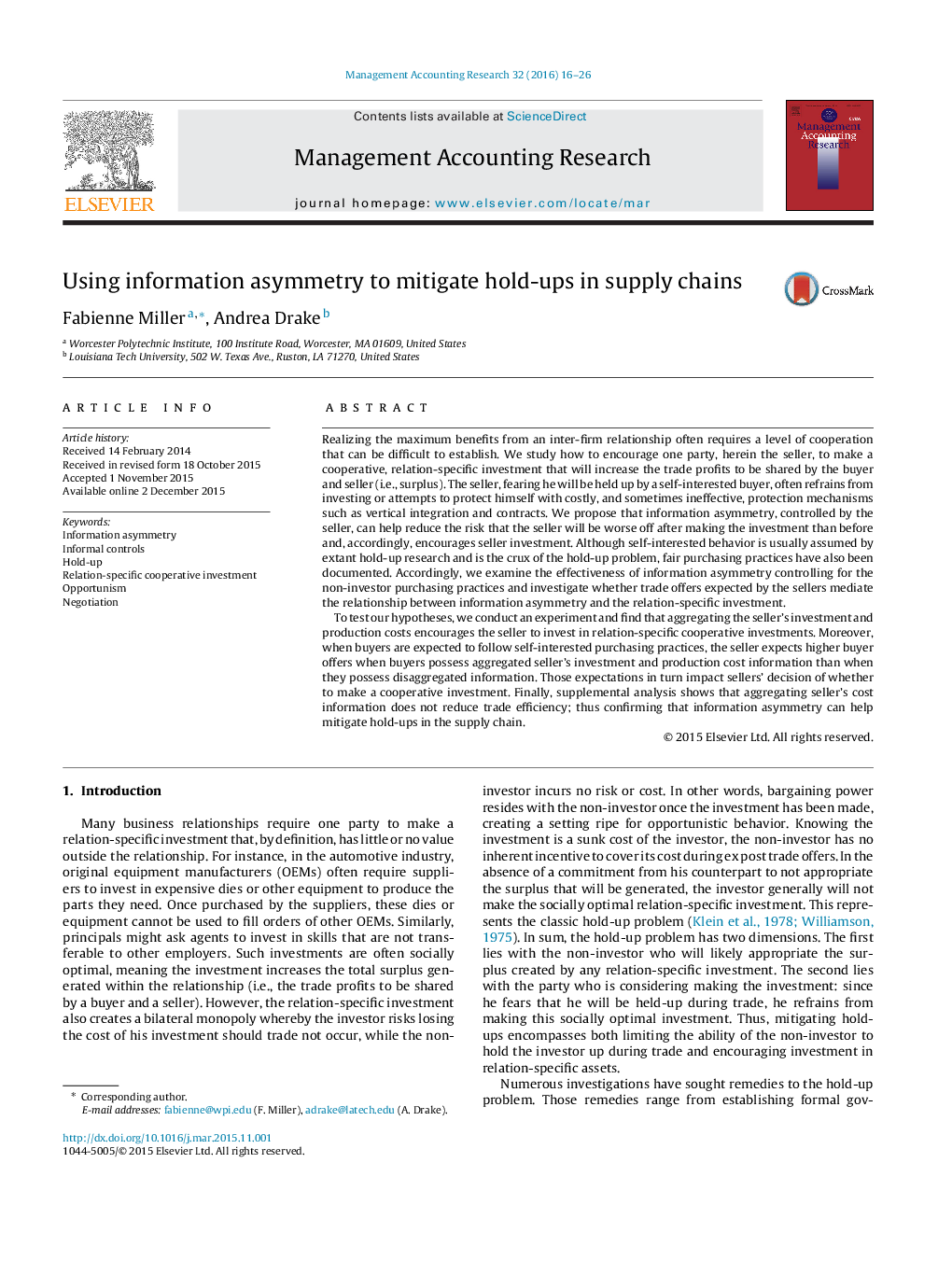| کد مقاله | کد نشریه | سال انتشار | مقاله انگلیسی | نسخه تمام متن |
|---|---|---|---|---|
| 1002533 | 1481780 | 2016 | 11 صفحه PDF | دانلود رایگان |
Realizing the maximum benefits from an inter-firm relationship often requires a level of cooperation that can be difficult to establish. We study how to encourage one party, herein the seller, to make a cooperative, relation-specific investment that will increase the trade profits to be shared by the buyer and seller (i.e., surplus). The seller, fearing he will be held up by a self-interested buyer, often refrains from investing or attempts to protect himself with costly, and sometimes ineffective, protection mechanisms such as vertical integration and contracts. We propose that information asymmetry, controlled by the seller, can help reduce the risk that the seller will be worse off after making the investment than before and, accordingly, encourages seller investment. Although self-interested behavior is usually assumed by extant hold-up research and is the crux of the hold-up problem, fair purchasing practices have also been documented. Accordingly, we examine the effectiveness of information asymmetry controlling for the non-investor purchasing practices and investigate whether trade offers expected by the sellers mediate the relationship between information asymmetry and the relation-specific investment.To test our hypotheses, we conduct an experiment and find that aggregating the seller’s investment and production costs encourages the seller to invest in relation-specific cooperative investments. Moreover, when buyers are expected to follow self-interested purchasing practices, the seller expects higher buyer offers when buyers possess aggregated seller’s investment and production cost information than when they possess disaggregated information. Those expectations in turn impact sellers’ decision of whether to make a cooperative investment. Finally, supplemental analysis shows that aggregating seller’s cost information does not reduce trade efficiency; thus confirming that information asymmetry can help mitigate hold-ups in the supply chain.
Journal: Management Accounting Research - Volume 32, September 2016, Pages 16–26
